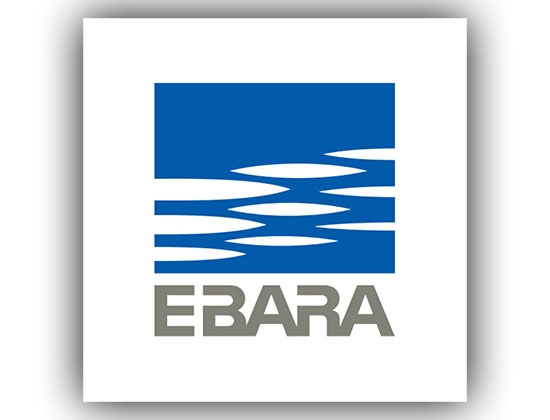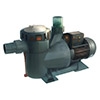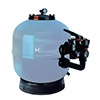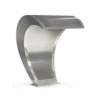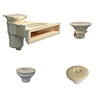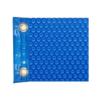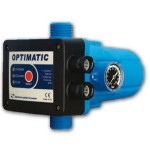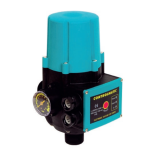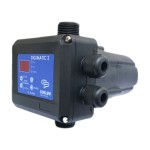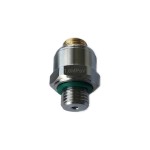Product Description
Pressure Transducer output 4...20mA
A pressure transducer, often called a pressure transmitter, is a transducer that converts pressure into an analog electrical signal. Although there are several types of pressure transducers, one of the most common is the "strain-gage" transducer, a sensor whose resistance varies depending on the applied force. The conversion of pressure into an electrical signal is achieved by the physical deformation of voltage sensors that are glued to the diaphragm of the pressure transducer and connected in a wheatstone bridge configuration. Pressure applied to the pressure transducer produces a deflection of the diaphragm that introduces tension into the gauges. The voltage will produce a change in electrical resistance proportional to the pressure.
Characteristics
Designed for use in air and water applications.
Parts in contact with water in AISI 304 stainless steel.
IP 67 protection.
Digitally compensated.
Pressure scale: 0 - 10 Bar .
RoHS/EMC Directive Compliance
Hydraulic connection: 1/4" male.
Specification
Technical Characteristics
| Model | STD P140 |
| Pressure scale: | 0 - 10 Bar |
| Output type: | chain |
| Output Scale: | 4...20 mA |
| Food: | 8...32 V |
| Precision: | 0.5% |
| Response time: | 2 ms |
| Lifespan: | more than 10 thousand. cycles |
| Electrical connection: | Metric-Pack 150 |
| Thermal error: | 2.0% FS/100 ºC |
| Work temperature: | -20 ºC to +110 ºC |
| Impact resistance: | IEC 60068-2-67 |
| Technology: | Sputtering Thin Film |
| Cable: | 2 m |
| Approvals | CUR US |
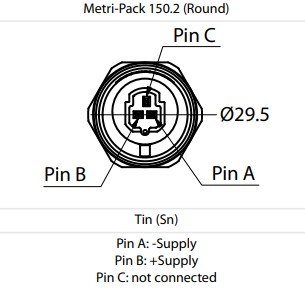
Documents
For more information, see the Technical Data Sheet.








